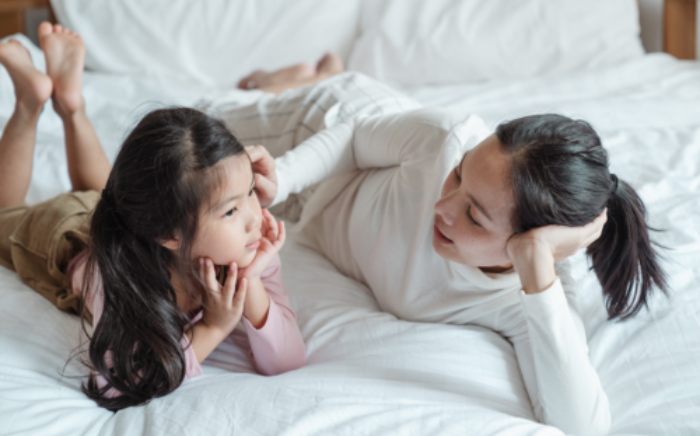Caregivers are always looking for ways to protect their children from distress, seeking to keep their children safe — did I bring the sunscreen? Did we pack extra diapers? Do we have a snack? But, what if your child signals distress in the absence of real danger?
Caregivers of children with anxiety disorders are confronted daily with the same dilemma: do they allow their child to sit with their anxieties, or do they rescue their child from them? This “rescue” behavior is referred to as parental accommodation and is generally defined as any changes parents make to their own behaviors or living patterns in order to help alleviate their child’s distress due to their child’s anxiety disorder.
Parental accommodation is intended to alleviate the child’s immediate distress, however; these caregiver behaviors are actually associated with higher child symptom severity and serves to reinforce the anxiety by signaling to the child that the feared situation warrants their fear response. Children need to have the chance to experience the distress of being in an anxiety provoking situation in order to learn that they can overcome it.
This does not mean that caregivers completely eliminate their support from their child in these instances, but rather, learn to remove the accommodating behaviors that help their child avoid (and unintentionally reinforce their fear) and instead engage in behaviors that gradually help their child face the anxiety provoking situation. For example, for a child who fears sleeping alone, instead of co-sleeping, a caregiver may systematically shorten the time they spend in the child’s room as they are falling asleep, thus not escaping the feared situation but helping the child build their bravery.
This isn’t easy! No one likes to see a child in distress. Start small and change one accommodating behavior at a time. Ask yourself the following questions before you engage with your anxious child:
- Am I making this choice because it will help my child cope more effectively next time or am I helping my child avoid and unintentionally reinforce their fear?
- Will this choice help my child become more independent or become dependent?
- Am I making this choice because I feel distressed, or is this an opportunity to remind myself that I am doing this for my child?
Resources:
- https://childmind.org/article/supporting-vs-enabling-a-child-with-challenges/
- https://www.anxietycanada.com/articles/accommodating-anxiety-2/
- https://www.psychologicalscience.org/publications/observer/obsonline/when-accommodating-childrens-symptoms-hurts-them-more-than-it-helps.html
References:
Kagan, E., Frank, H. E., & Kendall, P. C. (2017). Accommodation in youth with OCD and anxiety. Clinical Psychology Science and Practice, 24(1), 78-79.
Peris, T. S., Bergman, R. L., Langley, A., Chang, S., McCracken, J. T., & Piacentini, J. (2008). Correlates of accommodation of pediatric obsessive-compulsive disorder: parent, child, and family characteristics. Journal of the American Academy of Child and Adolescent Psychiatry, 47(10), 1173–1181.
Storch, E. A., Geffken, G. R., Merlo, L. J., Jacob, M. L., Murphy, T. K., Goodman, W. K., Larson, M. J., Fernandez, M., & Grabill, K. (2007). Family accommodation in pediatric obsessive-compulsive disorder. Journal of Clinical Child and Adolescent Psychology, 36(2), 207–216.









